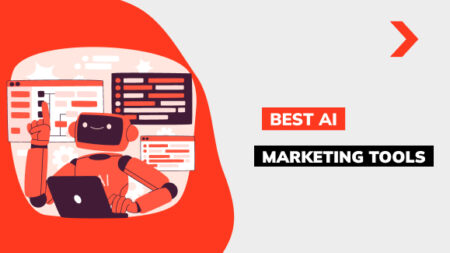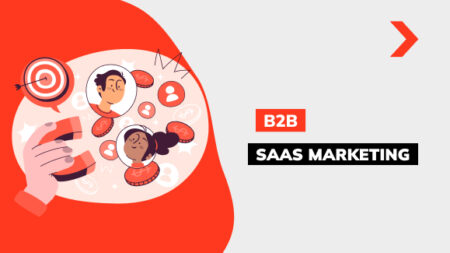What is B2C Marketing
The B2C market involves brands engaging directly with individual consumers, selling goods and services straight to the end user. A successful marketing strategy utilizes various marketing channels, from retail outlets to online stores and social media, to effectively reach and captivate consumers.

What is B2C Marketing?
Handing over a package to an individual falls under the business-to-consumer (B2C) market, while supplying a batch of goods pertains to business-to-business (B2B). B2C companies focus on the end user, typically through one-time transactions with minimal intermediaries. To compete effectively, they must reach their target audience efficiently. This is where a skilled B2C marketer comes in, knowing how to promote and optimize a B2C brand to attract more consumers.
Developing a B2C Marketing Strategy
In today’s competitive landscape, a successful business must adopt a meticulously planned marketing strategy that aligns with B2C market trends. This strategy should outline a clear, step-by-step action plan to guide optimization, promotion efforts, and the execution of a marketing campaign. Given that the average transaction value in the B2C segment tends to be relatively low, B2C marketing strategies often involve a long-term approach to avoid neglecting potential customers. However, by leveraging high-quality B2B marketing strategies and campaigns, businesses can mitigate these concerns. Effective B2B marketing ensures that the focus remains on building strong, strategic relationships, ultimately enhancing overall business performance and reducing the risk of overlooking valuable customer segments.
Setting clear B2C marketing goals
The B2C market segment meets the everyday needs of consumers — such as eating, relaxing, looking good, and staying healthy. With effective planning of content marketing experts can achieve pre-set goals. The key is to ensure that through competent promotion, your business can benefit — whether by reselling, producing a new product, or attracting new clients. Goal setting and achievement are closely interconnected and depend on the expert delivery of services.
Conducting market research
Typically, the B2C model is distinguished by its scale compared to other models. Therefore, before starting the implementation of digital marketing, specialists monitor and analyze the current market and what end consumers are most frequently purchasing. Specialists assess the profitability and popularity of the products or services offered by the brand or company. Based on the research conducted, they draw appropriate conclusions and employ only those competent solutions and efforts that will help to achieve success.
Building a strong B2C brand identity
To build a strong brand in the “emotional purchase market,” B2C businesses must execute precise optimization processes by specialists. These processes should leverage data-driven insights, personalize content marketing efforts to connect with the target audience, and enhance the customer experience. By showcasing the brand’s strengths and aligning with consumer expectations, businesses can build trust, strengthen their reputation, and outperform competitors.
Creating a compelling value proposition
By leveraging social media, content, influencer marketing, and other strategies, businesses can create compelling offers that capture consumer attention. Professionals should focus on profitable promotions, discounts, and incentives to attract a broad audience, boosting conversions and visibility. Email marketing can effectively distribute these offers, maintaining direct communication and nurturing customer relationships — essential for success in B2C marketing, where emotional connection and customer experience are key.
Effective B2C Marketing Channels
Promoting a B2C business online involves utilizing a range of effective optimization. To promote your products or services, leverage various strategies such as content development, targeted advertising campaigns, link building, and comprehensive website optimization — both internal and external. Engaging with influencers can enhance your product’s visibility on social media, while collaborating with bloggers can extend your reach across the internet. Additionally, incorporating data-driven insights and personalization strategies can further tailor your approach to resonate with your target audience.
Digital Marketing
B2C marketing involves a variety of tactics, methods, solutions, and strategies that brands or companies use to promote products or services directly to individual consumers. This approach emphasizes highlighting benefits and values while engaging customers through emotional responses. By tapping into customers’ personal needs and desires, businesses can use targeted strategies such as personalization, data-driven insights, and tailored content to foster deeper connections. Understanding and addressing these needs effectively attracts and retains customers, driving personal satisfaction and loyalty.
- Social media marketing
Experts use social platforms to promote B2C businesses. These are excellent online channels for promoting brands and companies, allowing them to quickly increase their audience, drive additional traffic to their websites, and thus boost online sales. Social media is also the foundation of SMM. Professionals use this simple method to reach a large audience, as the number of internet users grows daily, making this approach highly effective today.
- Content marketing
The use of content is the key to the success of any advertising campaign, so professionals always incorporate this service into business projects. It is a long-term marketing strategy aimed directly at quickly attracting an audience, engaging people with words and compelling texts, and building trust both during the promotion phase and at the launch stage. To achieve all the initial business goals, experts develop and distribute relevant content.
- Email marketing
An old but very reliable way to retain customers, especially in the B2C segment. If users are already subscribed to your website, the next step is to engage them in purchasing products or services. This can be done through an email marketing campaign, which involves creating an enticing and interesting offer sent to each individual customer via email. Specialists always create grand and beneficial offers in the form of promotions, discounts, etc.
- Influencer marketing
Studies show that modern consumers trust popular figures more. As a result, specialists
often collaborate with influencers like bloggers, actors, and musicians when budgets allow. Endorsements from these figures can drive consumer purchases. Such strategies are crucial for B2C businesses, as they can enhance conversion rates, boost traffic, increase sales, and improve profitability.
- Search engine optimization
The use of professional SEO by skilled experts is crucial for promoting any brand or business in the B2C segment across local and global markets. SEO services are highly effective, as they significantly increase website traffic, enhance link building, and drive organic traffic. They also help quickly improve online sales, strengthen reputation, build trust, enhance business authority, and attract customers to the company.
- Pay-per-click (PPC)
A marketing campaign where businesses only pay for each individual user click is extremely popular. Professionals use this promotion method because it can instantly increase conversion rates, immediately attract traffic and audience on the web, and quickly influence people’s opinions, engaging them in purchasing products or services from the advertised site. To achieve this, experts create highly attractive, interesting, and truly beneficial PPC campaigns for the audience.

Traditional Marketing
This type of marketing is executed by professionals with expertise in promoting goods and services through offline channels. It includes print materials, television, direct mail catalogs, billboard advertising, radio, exhibitions, fairs, and other events. While foundational, this approach remains crucial as it contributes to broad audience reach, trust, authority, and local presence. Integrating these traditional methods with online strategies enhances overall effectiveness, ensuring a cohesive marketing effort that leverages both offline and digital channels to maximize impact.
- Television advertising
The main feature of television advertising lies in its variety of ways to influence people. It includes dynamic visual imagery, which inherently captures viewers’ attention. For any business, using television advertising means instantly becoming known to a wide audience, thereby attracting potential customers. Television ads not only showcase products or services but also demonstrate their application, explain how they work, convey the experience of using them, and more.
- Radio advertising
Such advertising is utilized across various industries, including those providing services as well as products. Radio advertising consists of any audio advertisement broadcast on different radio stations to promote goods or services. It can be crafted by experts in various fields, including marketing, economics, social sciences, culture, and communication. Today, radio is often listened to by drivers, making this method of promoting services or products just as effective as others.
- Print advertising
This type of advertising relies on paper or similar materials intended for visual engagement. When using print advertising, experts may also employ ads in newspapers, magazines, or other print media (brochures, leaflets, catalogs, and other printed materials). Despite the high popularity of digital marketing, print remains an effective way to capture customers’ attention, as it generally has a longer-lasting impact.
- Direct mail
Incorporating direct mail into a business project provides an opportunity to influence customers through direct contact. Although mailing letters to postal addresses is an age-old promotional method, it remains effective today. This approach allows your brand or company to reach “warm leads” who are already familiar with and trust your business, significantly increasing the likelihood of making purchases. Additionally, you can craft unique offers in your letters that are hard for recipients to refuse.
Measuring B2C Marketing Success
The success of marketing in the business-to-consumer segment depends on whether the company or brand focuses on the end consumer, whether the client can fulfill their need, whether the transaction cycle is short. It is important to remember that the better the promotion and optimization actions are performed, the greater the chances that the client will decide to make a purchase from your business. One advantage of using content marketing services is the short time between when a client first learns about a product and when the deal is closed, which is a significant benefit for business owners.
Key performance indicators (KPIs) for B2C marketing
These metrics play a very important role in evaluating the success of advertising campaigns and promotion strategies. They include customer growth, retention rate, average transaction size, conversion rate, cost of acquiring each individual customer, and return on investment (ROI) over a specific period of time. By analyzing these indicators, experts can optimize their marketing efforts with precision, increase customer loyalty, and maximize profits. Regular monitoring aids in making informed decisions and achieving set goals.
Analyzing marketing data and ROI
Performing these services is a key element in assessing the effectiveness of the implemented and engaged advertising campaigns. It includes comprehensive collection, processing, and interpretation of data on the brand’s or company’s expenses and revenues related to marketing activities conducted by professionals. ROI helps fully understand how successfully funds were invested, how quickly returns can be expected, and allows for budget optimization. With competent data analysis, experts identify successful strategies, enhance marketing effectiveness, and achieve maximum results.
Making data-driven decisions
This service enables any business in the business-to-consumer segment to operate more effectively and confidently. By analyzing information, companies and brands can identify trends, predict outcomes, and optimize strategies. Data helps specialists minimize risks by providing accurate and informed decisions for promoting a website on the Internet. Utilizing such current practices allows businesses to quickly adapt to changes in the modern market, improve customer experience, and achieve set goals with greater prospects.
Importance of B2C marketing in today’s market
Engaging with current and potential customers through online marketing channels is a top priority for B2C businesses. With competent services and the right methodologies, tactics, and practices, significant results can be achieved, contributing to increased online sales. This includes the ability to reach a global audience, personalize the business by creating tailored messages for each customer, and attract additional audiences using analytics to understand and influence consumer profiles. Marketing provides measurable results, analytical capabilities, and scalability for any business project, offering numerous advantages.

FAQ
What is the difference between B2B and B2C?
B2B (Business to Business) and B2C (Business to Consumer) are two very different approaches in marketing and sales. In B2B, modern companies and brands sell their products or services exclusively to other businesses, focusing on long-term relationships, personalized offers, and complex solutions. In contrast, B2C companies and brands target end consumers, emphasizing mass marketing, emotional appeal, and quick sales. The main difference lies in the target audience and interaction strategy.
What is an example of a B2C market?
An example of a B2C market is retail, where companies and brands sell products and services directly to end consumers (customers). For instance, online stores with millions of customers worldwide focus on individual buyers, offering a wide range of products from electronics to clothing. In a B2C model, all companies and brands concentrate on creating a convenient shopping experience, utilizing mass marketing, and providing various payment and delivery options to meet the needs of a broad audience.
What is a B2C marketing strategy?
This strategy includes audience analysis, identifying key online communication channels, developing pricing policies, and creating diverse, engaging, attractive, and vivid advertising campaigns tailored to customer needs and desires. The main elements of such a strategy are emotional impact, shopping convenience, and a personalized approach. The goal of the strategy is to enhance customer loyalty, stimulate online sales, strengthen the brand’s position among competitors, and elevate the company’s standing.





